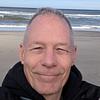You need to sign in or sign up before continuing.
Take a photo of a barcode or cover
adventurous
lighthearted
mysterious
fast-paced
Plot or Character Driven:
A mix
Strong character development:
Complicated
Loveable characters:
Complicated
Diverse cast of characters:
Yes
Flaws of characters a main focus:
No
The ending was rushed, as if Delaney ran out of time to write a full third act and had to cram it into 30 pages instead. Until then I was enjoying this and wouldn't have had anything substantial to complain about. Doesn't quite stick the landing so gets a star knocked off.
I didn’t end up liking it as much as I liked Nova, but I thought the reflections on language forming actual reality were good.
adventurous
medium-paced
Plot or Character Driven:
Plot
Strong character development:
No
Loveable characters:
Yes
Diverse cast of characters:
Yes
Flaws of characters a main focus:
Yes
This book explores the interaction of mind and language and imagines how powerful minds would be if a properly descriptive language existed. All of this in the context of a wacky, psychedelic space opera.
Really interesting premise, but definitely reads like old sci-fi.
adventurous
hopeful
inspiring
reflective
Plot or Character Driven:
A mix
Strong character development:
Yes
Loveable characters:
Yes
Diverse cast of characters:
Yes
Flaws of characters a main focus:
Complicated
This is one of my favorite sci-fi books ever! There's a lot of really funny subtle obvious plays on words [pun intended]. This concept was so cool and interesting. I would love to see a movie do it justice.
The first 1/3 or so of the book was totally a 5-star, then it declined to a 4-star by the end, and now several weeks after reading it I'm going to downgrade it to a final 3.5 star rating.
My biggest takeaways from this book:
-Delaney has such a breathtaking way with words
-His spare language is both a strength and a weakness
-He seems to really hate fat people.
To expand on the first two points- Delaney is amazing at using very few words to capture a strong sense of atmosphere, or to lay out the broad strokes of a scene, the unique characteristics of this future, or the minutest of character details. Some examples:
"Up from the basement cafe, black burst: a man, ebony-skinned, with red and green jewels set into his chest, face, arms, and thighs. Moist membranes, also jeweled, fell from his arms, billowing on slender tines as he hurried up the steps." How clearly can you picture this person??
"Though the door had opened automatically, the Baron held it with his hand in vestigial politeness." I fucking love sci fi that takes the time to show the things that are left behind after the reason is gone (like how we still say "hang up the phone" long after rotary phones are obsolete, etc.)
"Just then they were stopped by clotted guests" "clotted guests"? Elegant as fuck.
The flip side of this, though, is that sometimes Delaney boils it all down a little too much for my tastes. A small example that illustrates a larger tendency:
"They arrived at the bar, then turned with their drinks"
He has a propensity to lead up to something and then immediately jump to the aftereffect- he has them getting to the bar and turning from the bar with a drink, with no description of the actual obtaining of the drink. The lead up and the come down, skipping the middle completely. Sometimes this works, like here. We don't really need an explanation of the interaction with the bartender, the mechanisms of ordering the drink, or all the million other possible details that have no actual bearing on the story.
But it's more of a problem when Delaney writes this way about things that are important to the plot. There are times when the whole story suffers from an amorphous feeling of emptiness, and at times there's a lack of development that has you scratching your head a little and wondering how we reached where we're at. This is especially true of the later third of the book, when the crux of the story relies on two characters reaching a certain point together (in their relationship, in their mutual understanding, etc.) and you don't quite feel like it's been earned.
Now to the whole fat-hating thing. I noticed pretty early on that every fat person is described scathingly (not that skinny people escape Delaney's critical eye, but he's not shitty about every single one of them):
"Have you met a fat person yet who wasn't mean as a rat underneath it all?"
"He stood before a huge, naked man with a frown on his pocked face like a burst in a rotten rind"
These had me thinking "huh" but willing to let it go...until we reach a side character, the Baroness. The Baroness is fat, as you can guess, and Delaney sure as fuck doesn't let you forget it. He is pretty unfair to her, especially given the fact that she does nothing concrete to deserve such derision. This feels like the kind of dismissiveness that a man will often display towards a middle aged woman simply because he doesn't find her attractive and can't relate to her, or because he thinks she's too unintelligent or dependent and therefore finds her useless.
In this case, Delaney seems to be almost solely basing his opinion of the Baroness on her association with her husband, a man who we actually have reason to be repulsed by. It would be one thing if Delaney made more of a case for the Baroness being complicit in her husband's misdeeds, but it's almost like he expects us to just jump on the disgusted bandwagon just because. I'm pretty sick of people treating women as an extension of their male partner (especially after the last election cycle).
Some examples to make my point about the Baroness, though. First, for context, you need to know that the main character, Rydra, can supposedly read people's expressions to such a level that people think she can mindread. Upon meeting the Baroness:
"The Baroness seemed a muffled, vast, vacuous silence. The small muscle shifts, those counter communications that she was used to in direct conversation, were blunted in the baroness under the fat. Even though the voice came from the heavy lips in strident little screeches, it was as though they talked through blankets."
Over the next maybe dozen pages, we get:
"...her plump hand, of a pink and grey hue suggesting something parboiled."
"Her puffy freckled shoulders heaved beneath the straps of an evening dress tasteful enough over her distended figure, still grotesque"
"she let the sentence end in what would have been an ecstatic smile, but the weight of her doughy cheeks distorted it into a porcine pastiche of itself."
Jesus fuck, dude- WE GET IT. We're supposed to think she's disgusting.
Sigh. ANYwho.
So, overall: this story is super atmospheric, sharply written, and had some really interesting ideas. Some of the explorations of the power of language were delightfully thought-provoking, something that should be mentioned since it's the ostensible theme of the story. He talks about language in an interesting way, and uses it in an equally interesting way. So while I think the story suffered from a rushed ending that didn't quite 100% make sense, and the fatphobia kind of rankled, I'm overall super glad that I read it!
My biggest takeaways from this book:
-Delaney has such a breathtaking way with words
-His spare language is both a strength and a weakness
-He seems to really hate fat people.
To expand on the first two points- Delaney is amazing at using very few words to capture a strong sense of atmosphere, or to lay out the broad strokes of a scene, the unique characteristics of this future, or the minutest of character details. Some examples:
"Up from the basement cafe, black burst: a man, ebony-skinned, with red and green jewels set into his chest, face, arms, and thighs. Moist membranes, also jeweled, fell from his arms, billowing on slender tines as he hurried up the steps." How clearly can you picture this person??
"Though the door had opened automatically, the Baron held it with his hand in vestigial politeness." I fucking love sci fi that takes the time to show the things that are left behind after the reason is gone (like how we still say "hang up the phone" long after rotary phones are obsolete, etc.)
"Just then they were stopped by clotted guests" "clotted guests"? Elegant as fuck.
The flip side of this, though, is that sometimes Delaney boils it all down a little too much for my tastes. A small example that illustrates a larger tendency:
"They arrived at the bar, then turned with their drinks"
He has a propensity to lead up to something and then immediately jump to the aftereffect- he has them getting to the bar and turning from the bar with a drink, with no description of the actual obtaining of the drink. The lead up and the come down, skipping the middle completely. Sometimes this works, like here. We don't really need an explanation of the interaction with the bartender, the mechanisms of ordering the drink, or all the million other possible details that have no actual bearing on the story.
But it's more of a problem when Delaney writes this way about things that are important to the plot. There are times when the whole story suffers from an amorphous feeling of emptiness, and at times there's a lack of development that has you scratching your head a little and wondering how we reached where we're at. This is especially true of the later third of the book, when the crux of the story relies on two characters reaching a certain point together (in their relationship, in their mutual understanding, etc.) and you don't quite feel like it's been earned.
Now to the whole fat-hating thing. I noticed pretty early on that every fat person is described scathingly (not that skinny people escape Delaney's critical eye, but he's not shitty about every single one of them):
"Have you met a fat person yet who wasn't mean as a rat underneath it all?"
"He stood before a huge, naked man with a frown on his pocked face like a burst in a rotten rind"
These had me thinking "huh" but willing to let it go...until we reach a side character, the Baroness. The Baroness is fat, as you can guess, and Delaney sure as fuck doesn't let you forget it. He is pretty unfair to her, especially given the fact that she does nothing concrete to deserve such derision. This feels like the kind of dismissiveness that a man will often display towards a middle aged woman simply because he doesn't find her attractive and can't relate to her, or because he thinks she's too unintelligent or dependent and therefore finds her useless.
In this case, Delaney seems to be almost solely basing his opinion of the Baroness on her association with her husband, a man who we actually have reason to be repulsed by. It would be one thing if Delaney made more of a case for the Baroness being complicit in her husband's misdeeds, but it's almost like he expects us to just jump on the disgusted bandwagon just because. I'm pretty sick of people treating women as an extension of their male partner (especially after the last election cycle).
Some examples to make my point about the Baroness, though. First, for context, you need to know that the main character, Rydra, can supposedly read people's expressions to such a level that people think she can mindread. Upon meeting the Baroness:
"The Baroness seemed a muffled, vast, vacuous silence. The small muscle shifts, those counter communications that she was used to in direct conversation, were blunted in the baroness under the fat. Even though the voice came from the heavy lips in strident little screeches, it was as though they talked through blankets."
Over the next maybe dozen pages, we get:
"...her plump hand, of a pink and grey hue suggesting something parboiled."
"Her puffy freckled shoulders heaved beneath the straps of an evening dress tasteful enough over her distended figure, still grotesque"
"she let the sentence end in what would have been an ecstatic smile, but the weight of her doughy cheeks distorted it into a porcine pastiche of itself."
Jesus fuck, dude- WE GET IT. We're supposed to think she's disgusting.
Sigh. ANYwho.
So, overall: this story is super atmospheric, sharply written, and had some really interesting ideas. Some of the explorations of the power of language were delightfully thought-provoking, something that should be mentioned since it's the ostensible theme of the story. He talks about language in an interesting way, and uses it in an equally interesting way. So while I think the story suffered from a rushed ending that didn't quite 100% make sense, and the fatphobia kind of rankled, I'm overall super glad that I read it!
adventurous
challenging
mysterious
reflective
tense
medium-paced
Plot or Character Driven:
A mix
Strong character development:
Complicated
Loveable characters:
Yes
Diverse cast of characters:
Yes
Flaws of characters a main focus:
No





